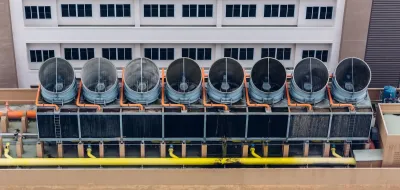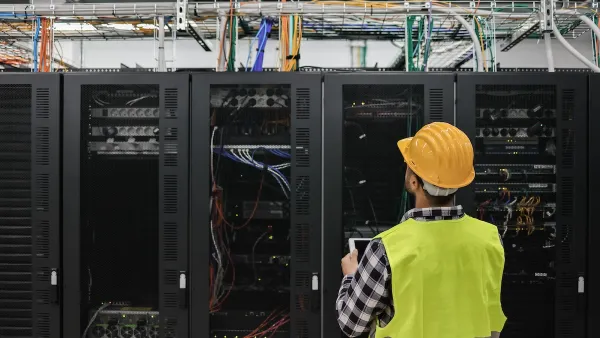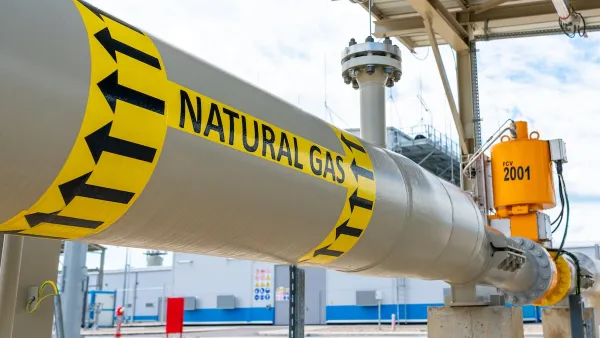In-house data centers owned by several major tech companies likely produce over six times as many greenhouse gas emissions as their owners estimate.

Data centers owned by major tech companies emit significantly more greenhouse gases than the sector admits, reports Isabel O’Brien in The Guardian. “According to a Guardian analysis, from 2020 to 2022 the real emissions from the ‘in-house’ or company-owned data centers of Google, Microsoft, Meta and Apple are likely about 662% – or 7.62 times – higher than officially reported.”
As early as 2022, before the explosion of AI tools like ChatGPT, data centers accounted for 1 percent to 1.5 percent of global electricity consumption. “According to Goldman Sachs, a ChatGPT query needs nearly 10 times as much electricity to process as a Google search, and data center power demand will grow 160% by 2030.”
While some companies say they are ‘carbon neutral,’ experts call this a ‘creative accounting’ strategy. “Amazon – despite all the PR and propaganda that you’re seeing about their solar farms, about their electric vans – is expanding its fossil fuel use, whether it’s in data centers or whether it’s in diesel trucks,” said a representative of Amazon Employees for Climate Justice.
O’Brien warns, “Even though big tech hides these emissions, they are due to keep rising. Data centers’ electricity demand is projected to double by 2030 due to the additional load that artificial intelligence poses, according to the Electric Power Research Institute.”
FULL STORY: Data center emissions probably 662% higher than big tech claims. Can it keep up the ruse?

National Parks Layoffs Will Cause Communities to Lose Billions
Thousands of essential park workers were laid off this week, just before the busy spring break season.

Retro-silient?: America’s First “Eco-burb,” The Woodlands Turns 50
A master-planned community north of Houston offers lessons on green infrastructure and resilient design, but falls short of its founder’s lofty affordability and walkability goals.

Delivering for America Plan Will Downgrade Mail Service in at Least 49.5 Percent of Zip Codes
Republican and Democrat lawmakers criticize the plan for its disproportionate negative impact on rural communities.

Test News Post 1
This is a summary

Test News Headline 46
Test for the image on the front page.

Balancing Bombs and Butterflies: How the National Guard Protects a Rare Species
The National Guard at Fort Indiantown Gap uses GIS technology and land management strategies to balance military training with conservation efforts, ensuring the survival of the rare eastern regal fritillary butterfly.
Urban Design for Planners 1: Software Tools
This six-course series explores essential urban design concepts using open source software and equips planners with the tools they need to participate fully in the urban design process.
Planning for Universal Design
Learn the tools for implementing Universal Design in planning regulations.
EMC Planning Group, Inc.
Planetizen
Planetizen
Mpact (formerly Rail~Volution)
Great Falls Development Authority, Inc.
HUDs Office of Policy Development and Research
NYU Wagner Graduate School of Public Service





























